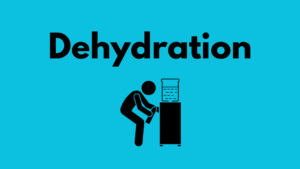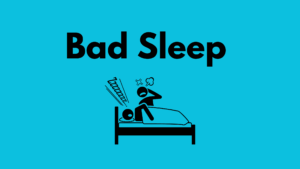Let's talk about why you might still feel tired even
after a full night’s sleep...
Sleep is when your body repairs itself. Without proper sleep, it struggles to manage stress, recover from workouts, and burn body fat efficiently. It also affects your brain function and cognitive abilities. If you have ever woken up feeling just as tired as when you went to bed, you’re not alone. Many of us experience fatigue despite a full night’s sleep. If you find yourself dragging through the day, several factors could be at play. Let’s talk about three common ones below and how you can fix them.
1. Low Food Intake and Insufficient Calories – Not Enough Fuel
Description: Just as a car needs fuel to run efficiently, your body requires adequate nutrition to function optimally. If you’re not eating enough, or if your diet lacks essential nutrients, you might experience a drop in energy levels. Even if you eat regularly, insufficient caloric intake can lead to fatigue. This is often exacerbated when people increase their activity levels while cutting calories, resulting in a lack of proper fuel over time and leaving you feeling drained.
Science Behind It: If your caloric intake falls below your Basal Metabolic Rate (BMR), your body may struggle to maintain energy levels. Depleted glycogen stores and inadequate glucose availability further contribute to reduced energy. Prolonged dieting can also cause deficiencies in essential vitamins and minerals, such as B vitamins, iron, and magnesium, leading to chronic fatigue.
Solution: Ensure you’re consuming enough food to match your activity level. To perform optimally, your body needs adequate fuel. Calculating your macronutrients (carbohydrates, proteins, fats) and evaluating your diet can help you achieve a balanced intake of these nutrients. Incorporate a variety of healthy foods, including fruits, vegetables, whole grains, and lean proteins. Monitor your caloric intake to meet your energy needs based on your activity level and metabolism. If necessary, consider taking a multivitamin and consult with a nutritionist or dietitian for personalized advice.

2. You’re Dehydrated
Description: Dehydration is a surprisingly common cause of fatigue. Water is crucial for many bodily functions, including maintaining blood volume and regulating body temperature. When you’re dehydrated, your blood volume decreases, which can lead to reduced oxygen and nutrient delivery to your tissues, resulting in fatigue.
Science Behind It: Dehydration reduces blood volume, making your heart work harder to pump blood and deliver oxygen to muscles and organs. This extra effort can leave you feeling tired. Additionally, electrolytes like sodium, potassium, and magnesium, which are essential for muscle function and energy levels, can become imbalanced when you’re dehydrated, further contributing to fatigue.
Solution: Start your day with 30 ounces of water and continue to drink plenty throughout the day. If you feel the need for caffeine, try drinking a glass of water with electrolytes first; it may help address dehydration and make your caffeine more effective. Since many people are chronically deficient in electrolytes, adding an electrolyte supplement to your routine can also be a game changer.

3. You’re Suffering from Bad Sleep Quality
Description: Even if you sleep through the night, poor sleep quality can still leave you feeling tired. A common issue is obstructive sleep apnea, where your airway becomes blocked during sleep, causing you to breathe through your mouth, snore, and experience disrupted breathing. This often results in waking up with a dry mouth. While it might seem like a minor annoyance, these disruptions can significantly affect your energy levels and cognitive function the next day because your brain isn’t getting enough oxygen while you sleep.
Science Behind It: When your airway is obstructed, your brain receives less oxygen, leading to brain fog and reduced energy levels the next day. Inadequate oxygenation prevents your body from reaching the restorative stages of sleep, resulting in chronic tiredness and cognitive difficulties. Your body expends extra effort to maintain basic functions, impacting overall sleep quality.
Solution: To improve airflow, consider using medical tape to gently tape your mouth shut, which encourages nasal breathing. Alternatively, nasal strips can help open your nostrils for better airflow. If these methods don’t help, consult your doctor about a sleep study and the possibility of using a CPAP machine for more effective treatment.

To Wrap It Up
Feeling tired despite a full night’s sleep can be frustrating. Addressing factors such as dehydration, inadequate food intake, insufficient caloric consumption, and poor sleep quality can significantly impact how you feel. By paying attention to hydration, fueling your body properly, and improving your sleep quality, you can combat fatigue and boost your energy levels throughout the day.
